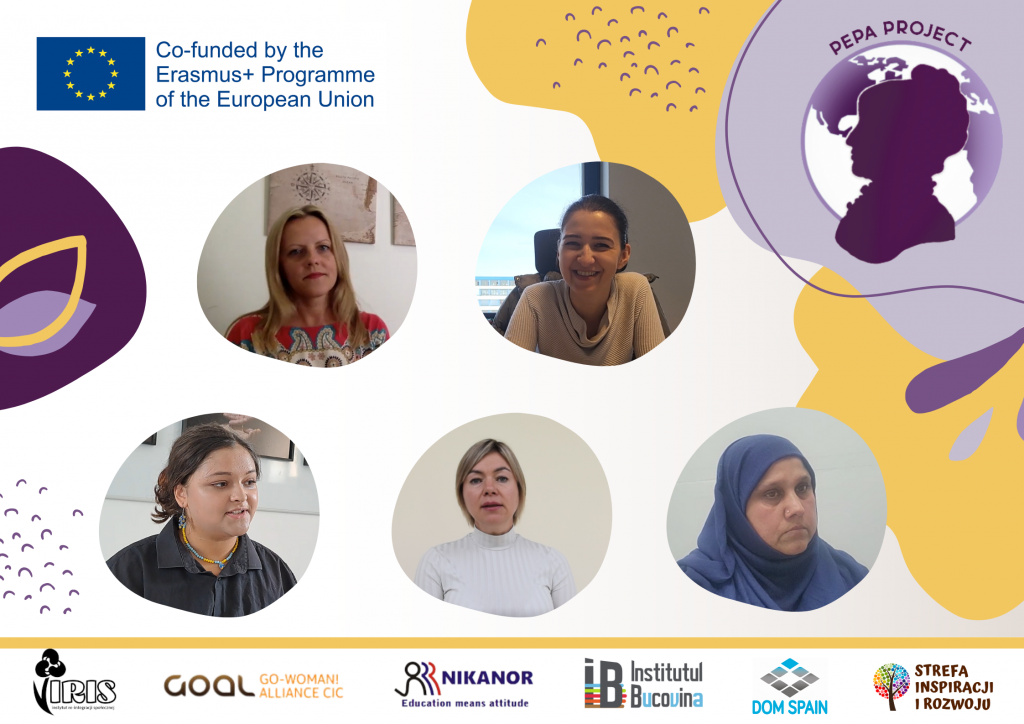No matter how early or late you start, volunteering creates a sense of belonging to a community and provides a purpose for those struggling to build social connections. And as research shows, volunteering, along peer-to-peer support, significantly helps migrant women integrate better, access the labour market, gain confidence and improve their mental and physical health.
Through the resources we’re working on here, at PEPA, our wish is to continue to help these women build a better future for themselves, especially those with lower education levels or vulnerable backgrounds. The 3 Intellectual Outputs prepared by our consortium: the best practice guide for practitioners, peer support guides, learning materials & e-platform, aim at increasing the number and quality of peer support and volunteering opportunities for people in the target group, stimulating, at the same time, their motivation to learn.
As part of IO3, we’ve already started to work on project videos, that will be used to raise awareness on the project’s outputs. Each video features the real story of a migrant woman, describing her experience with volunteering and peer support. Interviews have been taken during the last months with migrant women coming from Ukraine, Macedonia, and Pakistan. Here is what we’ve learned so far:
- When it comes to prospects, there’s one important thing these stories have in common: volunteering was the perfect way to improve their language skills and get out of the comfort zone, feeling the power of humanity. At the same, they see language as a barrier in finding work in specific fields, the tourism sector being more accesible to them;
- Their successful integration in the society is the merit of friends and people’s sincerity, rather than their own creativity skills;
- When asked about how they support one-another and in which situations, the Ukrainian interviewees mainly referred to the current war in their country, stating that they tried to help with everything within their power, such as translations, search for housing, songs for keeping the community united, both on their own or through the organizations they work for.
To conclude, we believe that it’s necessary to keep working with migrant women to stimulate them to engage more in volunteering activities, but for now, they’re doing a pretty great job providing peer-to-peer support for those in need. Improving language skills remains one of the best advantages of volunteering, representing a way to practice more, in real conversations.

